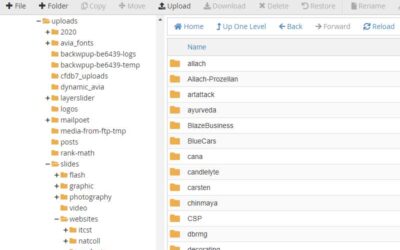What are the advantages and disadvantages of WordPress template design frameworks
What are the advantages and disadvantages of WordPress template design frameworks
Therefore these will create fairly lean and fast websites which is good in regards smooth user experience as well as search engine ranking (SERP’s). Often a lot of customisations and or plugins need to be added to get there. But if not maintained and updated they will eventually be outdated and therefore create problems, i.e. new WordPress functionality requiring up-to-date JavaScript libraries or it might not support the updated plugin features any-more, etc. Hence I had to replace a couple of those hand coded and out-dated templates which were creating various problems, starting from simple functional issues to e-Commerce problems and even security issues.
Hence I found hand coded and therefore highly customised templates to be more trouble over the years than an advantage in keeping up with all the changes of WordPress, PHP, MySQL, JavaScript and overall plugin functionality and security related changes or even just design trends. Essentially it meant to switch to a different template to stay up-to-date with recent developments and that created of course extra efforts and costs.
After going down that path myself I decided it was best to let others do the grunt work and benefit from their skills in keeping up to scratch with everything platform related. So I started using various template design frameworks, like Genesis, Envato, Woo and Elegant Themes which all are kept up-to-date by a team of developers.
A downside on relying on Design frameworks is that they are often bloated with functionality that slows down a website and or are difficult to learn due to their special ways. Another is that it can impact your design via their main design framework updates, which then again require corrections. Hence I am using the main template design framework to cover the functional and design basics but create a child theme for the desired look and feel. And to protect the website design for the most part from any design changes due to template updates in future, as it is recommended by WordPress themselves, click here for more information.
The really big advantage is that these stay fairly up-to-date and therefore create hardly any issues as mentioned before in hand coded templates. That allows for a cost efficient and Agile implementation and some, like the Elegant Themes framework, come with a visual page designer making it easy to create well structured and attractive content, even for a layperson. Besides it allows for quick addition of further functionality that is shipped along with it, i.e. SEO, search, galleries and sliders, etc.
Overview of the advantages and disadvantages of WordPress template design frameworks based on my experience
| Custom Template | Template Framework | |
| Speed | + | – |
| Usability | – | + |
| Maintenance effort | – | + |
| Long-term support | – | + |
| Cost efficiency | – | + |
Simply contact us to discuss your requirements!
You might also like...
Virtual Tours services
After many months in the making, we are excited to announce a new service...
WordPress 5 with Gutenberg block editor is here, yeah!?
December 2018 was a big month of major WordPress updates. WordPress...
How to create and maintain a custom folder structure in WordPress
If you are like me working for a long time with computers and dealing with...



